Annastacia Palaszczuk quits days after ‘frank’ talks with union bosses
Annastacia Palaszczuk was urged by union and Labor figures to consider her future days before her tearful resignation, as three of her senior ministers fight to take the leadership.
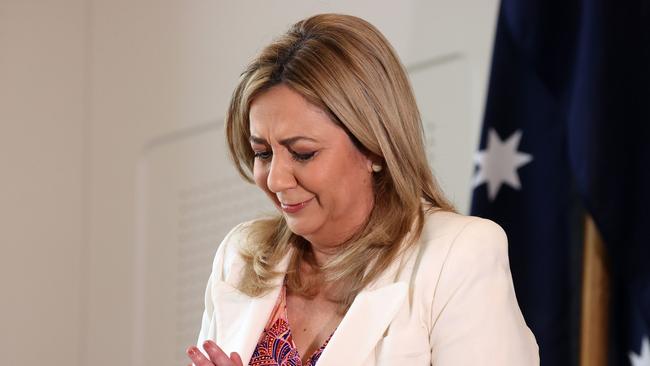
Annastacia Palaszczuk has caved to factional pressure to quit as Queensland Premier after nine years, sparking a furious fight between three of her senior ministers over who will lead Labor to next year’s state election.
After months of mounting leadership speculation, The Australian can reveal Ms Palaszczuk was urged by powerbroker and union leader Gary Bullock and Queensland ALP president John Battams to consider her future in a “frank” conversation days before her tearful resignation on Sunday.
The third-term Premier had also been warned that union leaders planned to raise concerns with her at their quarterly meeting with cabinet ministers this week.
Ms Palaszczuk anointed her deputy Steven Miles as her successor, but his Left ally, Health Minister Shannon Fentiman, and Right faction Treasurer Cameron Dick are also angling for the job.
The three leadership rivals and their backers were frantically trying to lock down a deal before Friday’s caucus meeting to avoid a contested ballot of MPs, which would automatically trigger a months-long vote of rank-and-file members and affiliated unions.
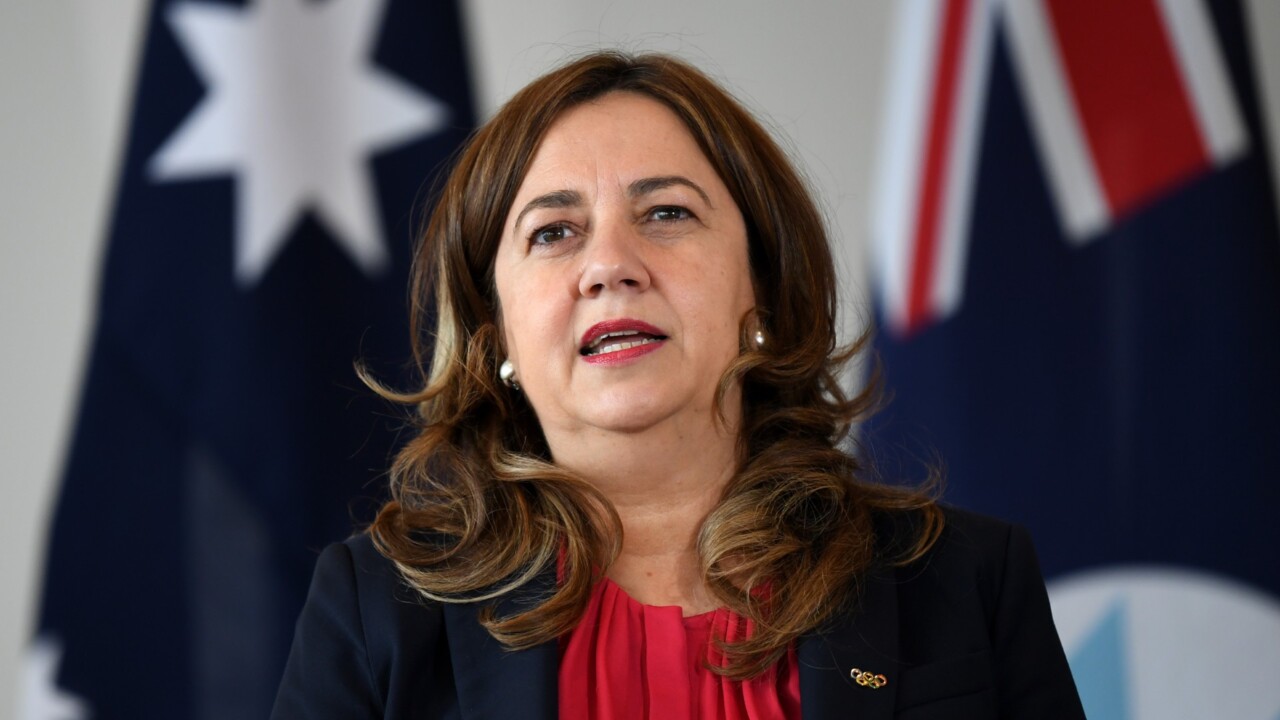
Ms Palaszczuk, considered little more than a seat warmer when she took over the leadership in 2012 with just seven Labor MPs in the parliament, has delighted in exceeding expectations.
In 2015 she obliterated LNP’s Campbell Newman’s biggest-ever parliamentary majority after a single term in government and, against odds, increased Labor’s seat count at three successive elections to cement herself as one of Australia’s most successful female politicians.
But successive public polling this year revealed Ms Palaszczuk’s personal popularity, one of Labor’s strongest assets, was in free-fall and Labor was on track to lose next October’s state election.
Unions also began polling last month to gauge the “political landscape” and some threatened to cut campaign spending ahead of the election if Ms Palaszczuk refused to go.
The last premier standing from the Covid-19 pandemic, Ms Palaszczuk’s exit follows the resignations of NSW’s Gladys Berejiklian, WA’s Mark McGowan and Victoria’s Daniel Andrews.
“When I led this party from an opposition of just seven members I said that the first election would be like climbing Mount Everest – I went on to climb that mountain twice more and I don’t need to do it again,” she said in her shock announcement on Sunday. “I have given it my all and I have run a marathon.
“I have fought the good fight and have given everything but now is the time for me to find out what else life has to offer.”
Anthony Albanese described her as a Labor hero on Sunday and she was praised by the nation’s first female prime minister, Julia Gillard, for her triple election-winning streak.
“Annastacia’s leadership brought Queensland Labor back from the political brink and on so many occasions since then her government has put Queensland in a position of national leadership,” the Prime Minister said.
In August, The Australian revealed Ms Palaszczuk had lost the confidence of key sections of the Labor Party in Queensland, with internal concerns that the government would lose next year’s election unless she quit. The next day, Ms Palaszczuk left on a two-week holiday to Italy, while her ministerial colleagues, backbenchers, and close allies continued to privately call for her resignation.
On Sunday, Ms Palaszczuk revealed she had begun to contemplate her future while overseas with her surgeon partner Reza Adib.
“Finally, last week, my mind was made up at national cabinet,” she said. “I was sitting there thinking, this is the fourth prime minister, there were all these new faces sitting around the cabinet table, we got a great deal for Queensland, $4bn, and I thought to myself, renewal is a good thing.”
Last week, the powerful head of Queensland’s peak union body, Jacqueline King, acknowledged there was “disquiet” in the labour movement and refused to back Ms Palaszczuk, saying it was a “up to caucus to decide” whether she remained Premier.
While Ms Palaszczuk will leave a legacy of reform, having made abortion and voluntary assisted dying legal, and launched the state’s energy transition away from coal, she will be remembered widely across Australia for her prolonged border closures during the pandemic.
Her Covid response, which kept families separated for months and was deeply unpopular outside of Queensland, underpinned her 2020 election victory and allowed most of the state to get vaccinated before widespread transmission of the virus.
Ms Palaszczuk has for years refused to declare a successor, but on Sunday threw her support behind Mr Miles, describing him as a “fantastic, steadfast deputy”.
Contrary to her declaration that Queensland’s next premier would be decided at a meeting of Labor MPs on Friday, powerbrokers were working behind the scenes to secure a deal before caucus formally endorses a candidate.
Under Labor rules in Queensland, if the party’s administration committee receives more than one nomination, a vote of branch members and affiliated unions is automatically triggered, which could take months.
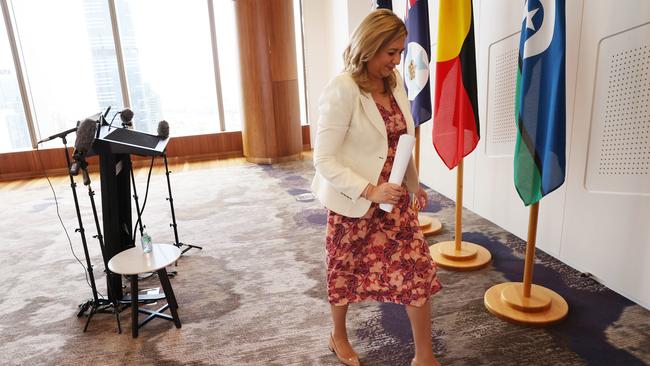
One senior Labor MP said: “Nobody wants that. Things are being worked out now. It could take a few days, but there is no way it will come to that (wider ballot)”.
A senior Labor source insisted Ms Palaszczuk “continued to have the broad support of her caucus colleagues and broad institutional support across the party to continue on”.
But a federal Labor figure said Ms Palaszczuk’s continuing leadership had been a “drag on the Labor brand overall” and urged any cabinet minister or MP thinking about retiring at the next election to immediately declare their intentions.
The federal Labor source said a wholesale reshuffle of the cabinet – which would ditch deadwood and promote new faces – was essential to convince voters it was a refreshed government.
Mr Miles publicly declared his intention to run on Sunday, promising to build on Ms Palaszczuk’s legacy and “refocus the state on the services Queenslanders rely on”.
“He said there was “so much left to do”, including the acceleration of building new homes, refocusing the health system on patients, and working “better with our partners to deliver the legacy benefits of the Olympics and Paralympics”.
Ms Palaszczuk, who inherited her safe seat of Inala from her father Henry in 2006, worked as a political staffer before she was elected to parliament.
She said she was unsure what she would do after she serves her last day as premier on Friday.
“I have no job,” she said with a laugh. “I think I will be out there promoting Queensland in some form of capacity.”
Mr Battams said Ms Palaszczuk’s legacy was “a safer, brighter Queensland with so much to offer”.



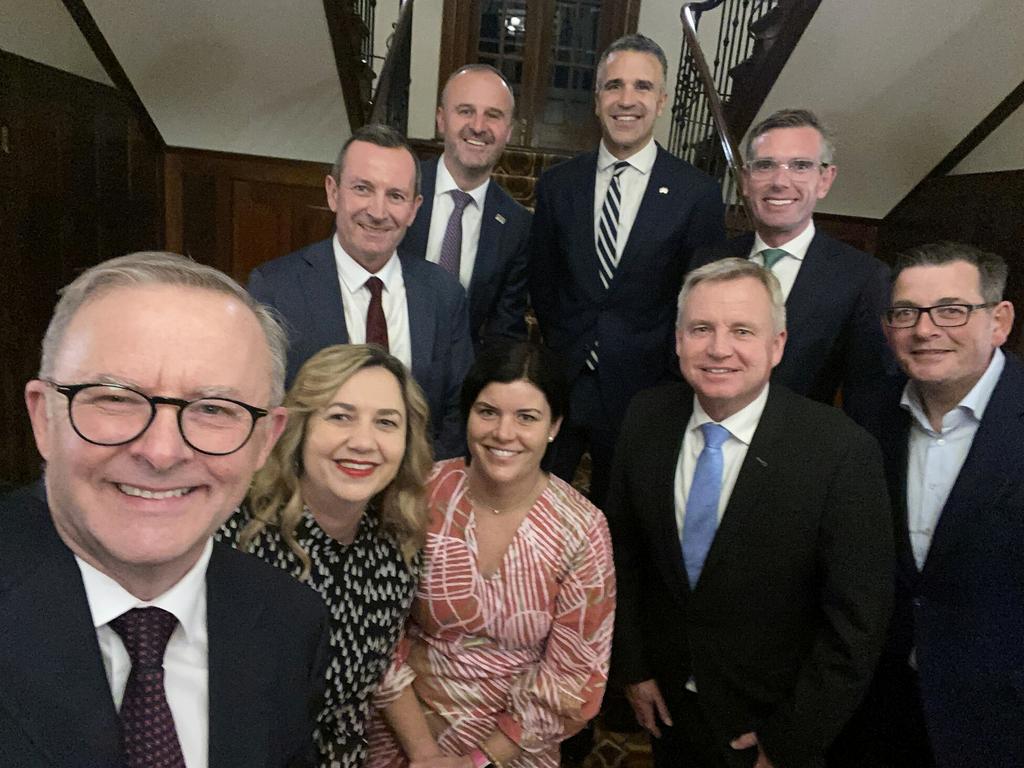
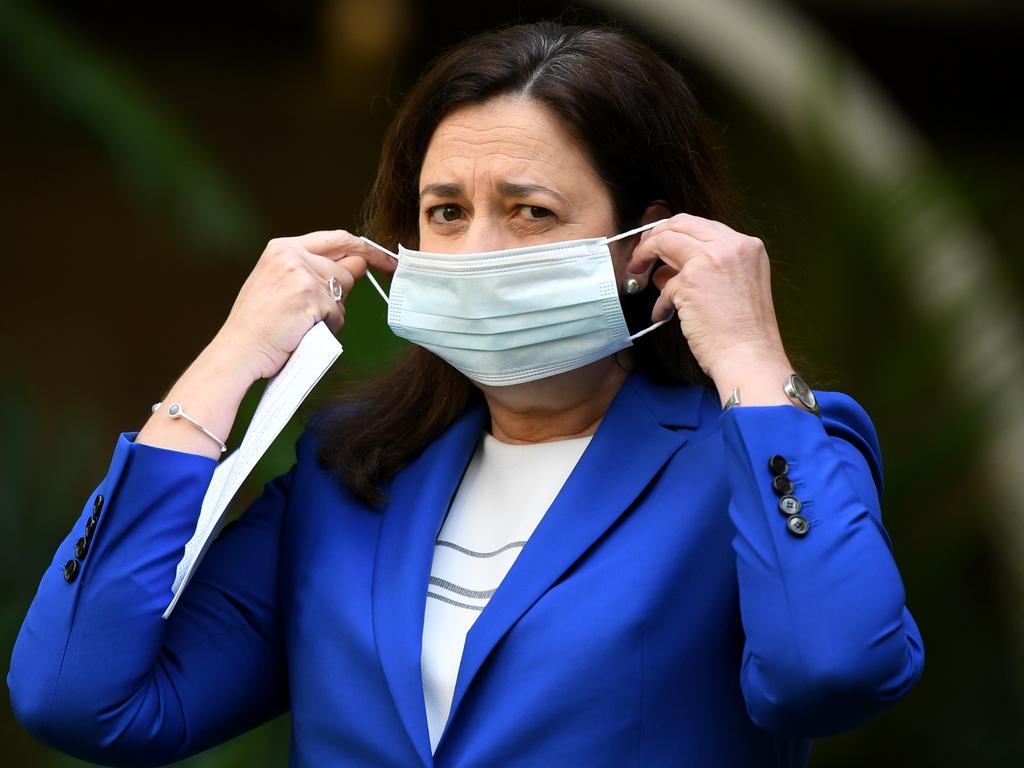
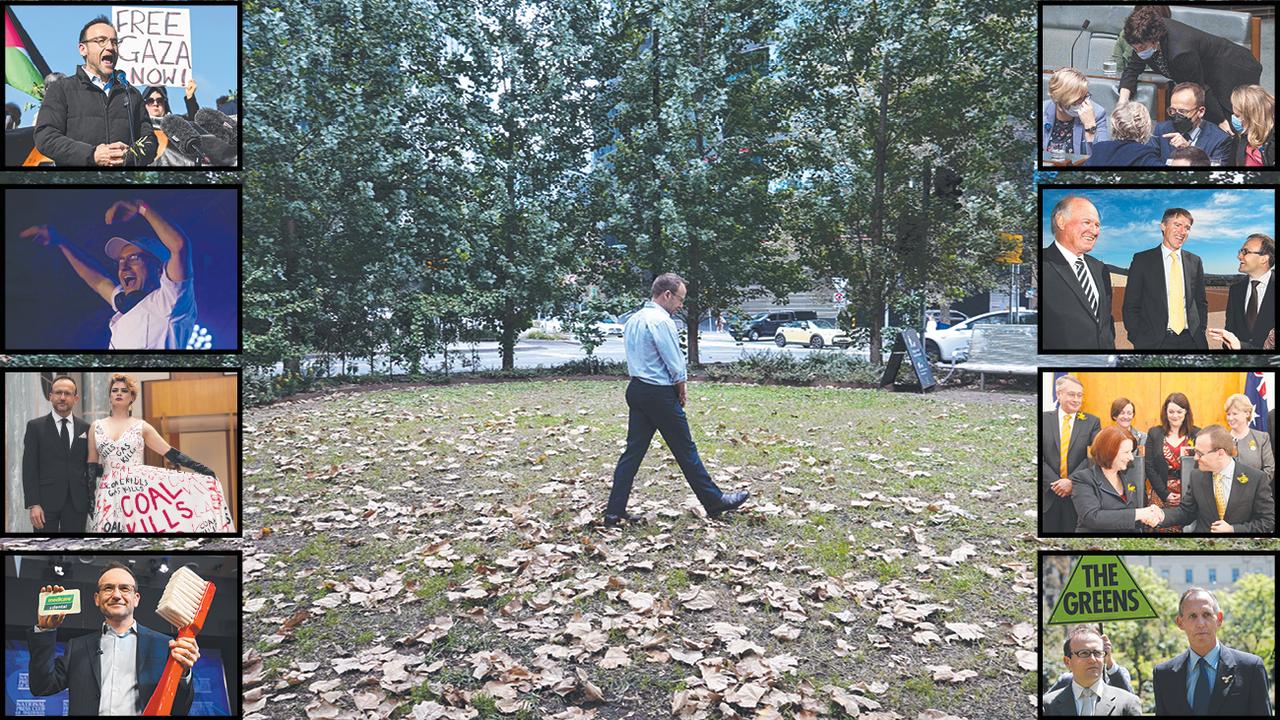
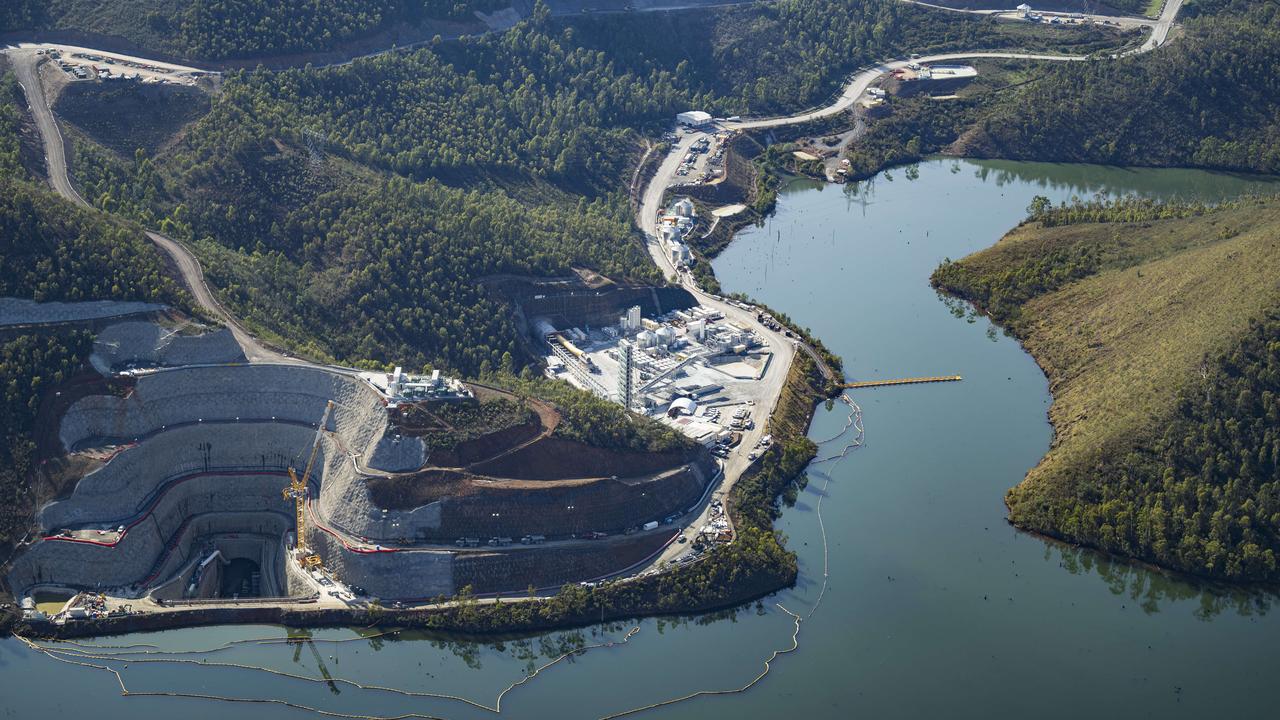
To join the conversation, please log in. Don't have an account? Register
Join the conversation, you are commenting as Logout